Christian response to the pandemic challenge discussed at online-conference
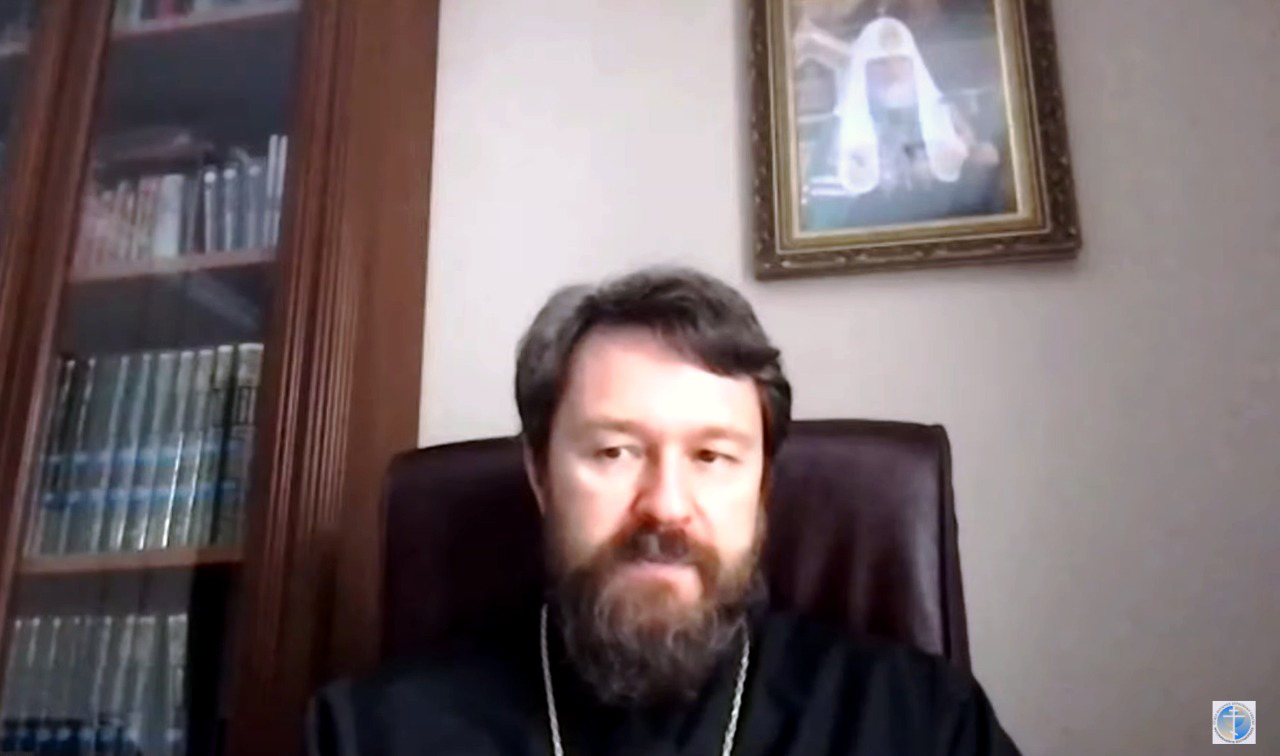
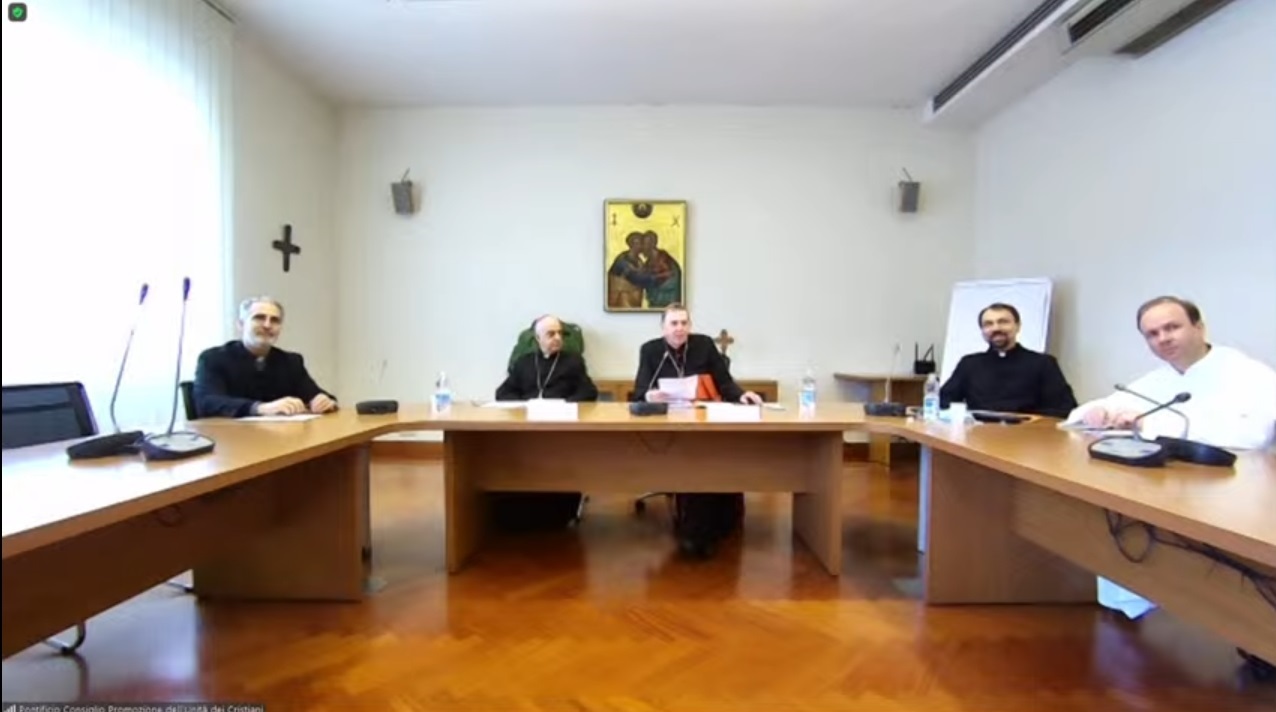
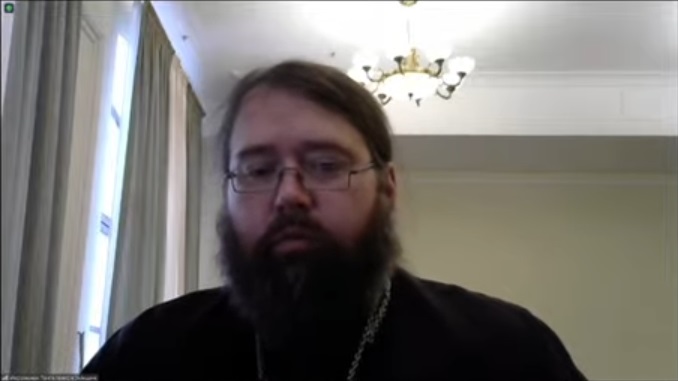
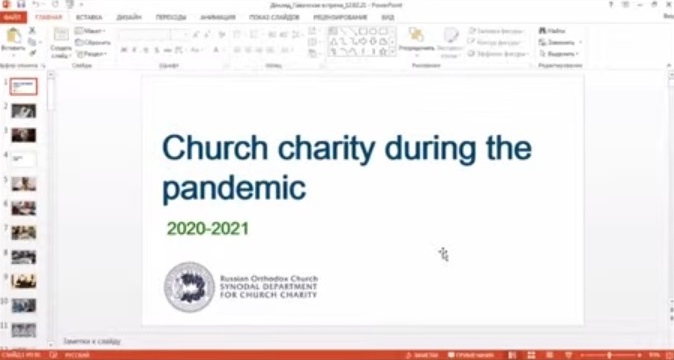
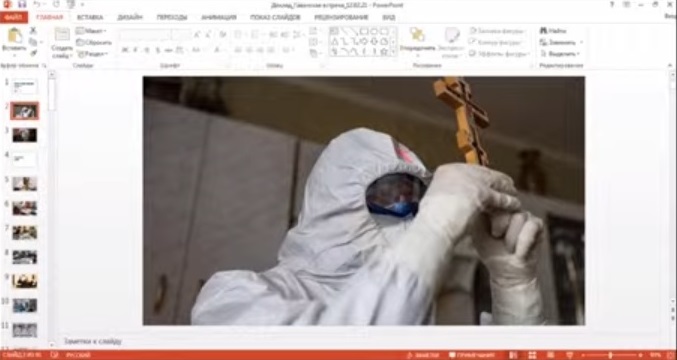
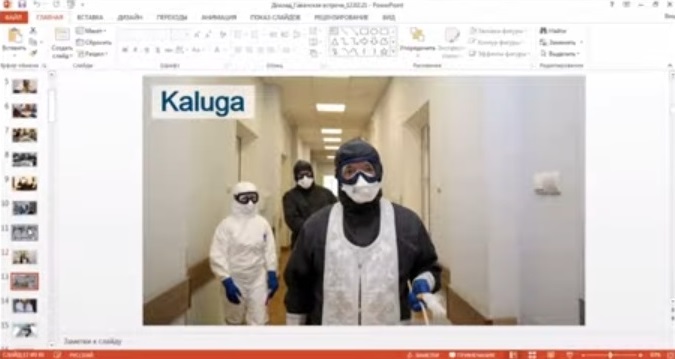
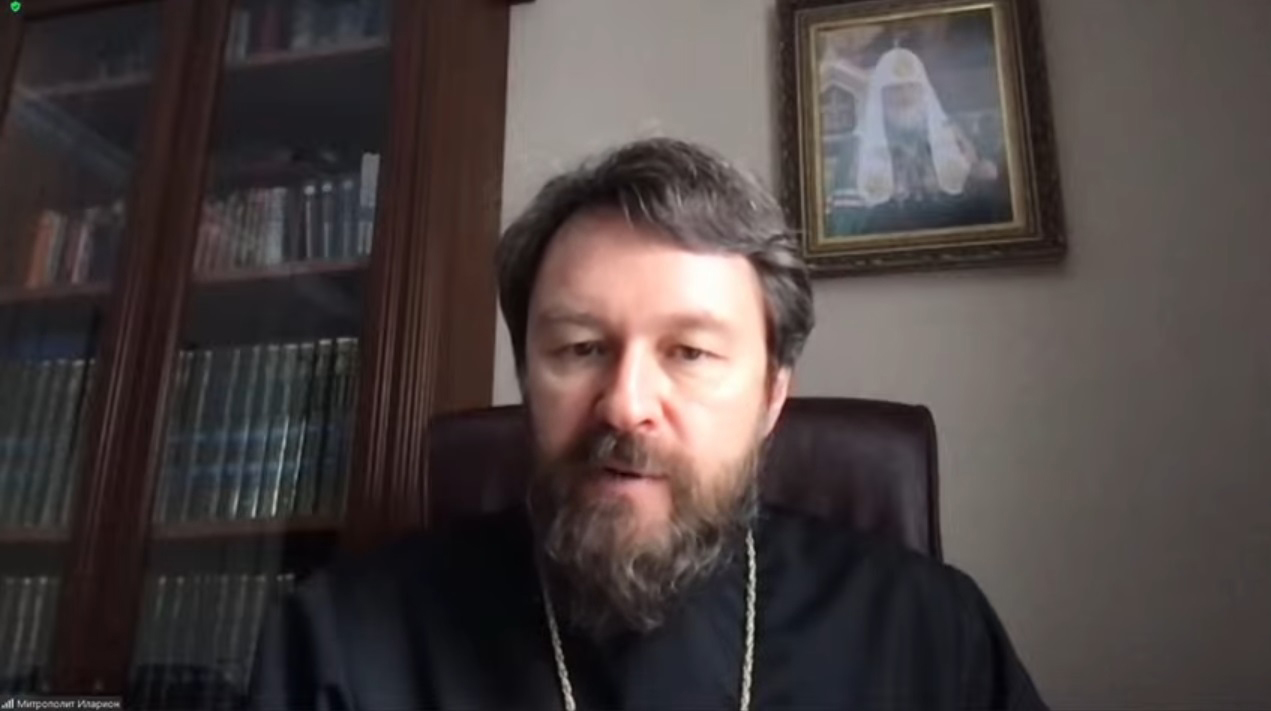
On February 12, 2021, a conference on the Church and the Pandemic, dated to the fifth anniversary of the Havana Meeting between Pope Francis and His Holiness Kirill, Patriarch of Moscow and All Russia, took place in the online mode.
Taking part in it from the Russian Orthodox Church were Metropolitan Hilarion of Volokolamsk, chairman of the Moscow Patriarchate’s department for external church relations (DECR), Archimandrite Philaret (Bulekov), DECR vice-chairman, Hieromonk Panteleimon (Aleshin), DECR vice-chairman for church charity and social service, Hieromonk Stephen (Igumnov), DECR secretary for inter-Christian relations, and DECR staff members Ms. M. Nelyubova and I. Nikolayev.
Participating in the discussion on the conference subject from the Roman Catholic Church were Cardinal Kurt Koch, President of the Pontifical Council for Promoting Christian Unity, Bishop Rino Fisichella, President of the Pontifical Council for the Promotion of the New Evangelisation, and Rev. Jaromir Zadrapa, Rev. Rev. Hyacinthe Destivelle and Rev. Avelino Gonzalez, staff members of the PCPCU.
As Metropolitan Hilarion noted in his remarks, the coronavirus pandemic has become a huge and to a considerable extent sudden test for the whole world. ‘This global disaster has revealed quite a number of acute international and social misbalances and to overcome them it is important as never before not only to bear common witness but also for Christians to engage in joint actions’, he emphasized, ‘Today we are called to comprehend the challenges we are facing so that in the months to come we could join efforts to help work out adequate solutions of aggravating problems in order to be able to present the vision of ways for overcoming them which is shared by major Christian Churches’.
The DECR chairman stated that the problems, which have affected society, have not bypassed Christian Churches throughout the world. ‘The dramatic situation last spring and the strict restrictions imposed on any gathering or people demanded that a whole series of measures should be taken by the Supreme Authority of the Russian Orthodox Church’, His Eminence spoke in his report about how the Church was going through that period.
It was also pointed out that the emergency situation promoted the accelerated mastering of appropriate technologies that had been used on a very small scale before the pandemic. “Certainly, the ‘virtual’ presence at a divine service in no way can replace the real participation in it, primarily, in the sacrament of the Eucharist”, the hierarch emphasized, “However, in those hard conditions, the spread of live streaming services was not only because of the pastoral need and concern for the common good, but also offered the Church certain missionary opportunities. By the example of my Moscow parish I can attest that during the pandemic tens of thousands of people participated in live steaming of worship services - much more than could be even accommodated in the church”.
In his opinion, in such a situation, preaching in a broad sense of this word acquires a special importance presupposing, among other things, the use of media platforms for handing down the Good News and revealing to people the beauty of the liturgy ‘so that ever more people could come to church consciously as the social disaster is being overcome’.
The DECR chairman also said that the examples of cooperation in charitable work even in the hardest conditions of closed borders and restricted travel during the pandemic make it possible for us to appreciate the importance of the words of Pope Francis of Rome and Patriarch Kirill of Moscow and All Russia, who stated five years ago that ‘Christian communities undertake notable works in the fields of charitable aid and social development, providing diversified forms of assistance to the needy. Orthodox and Catholics often work side by side. Giving witness to the values of the Gospel they attest to the existence of the shared spiritual foundations of human co–existence (Joint Declaration, 14).
‘At this stage, our common task is to give a new impetus to the cooperation of our Churches in the area of social service’, the DECR chairman said with conviction.
President of the PCPCU Cardinal Kurt Koch underlined in his remarks that, ‘already on the day following the meeting of Pope Francis and Patriarch Kirill in Havana, we decided to mark this event each year to keep alive the memory of its historic importance. We agreed that each time our reflections should be focused on one of the specific points of the Joint Declaration signed by the heads of the two Churches’.
We have not had a need to look for a long time for the theme of the fifth anniversary due to the present international situation marked with the problem of coronavirus, he stated pointing out that many issues and problems dealt with in the Joint Declaration summing up the Havana Meeting were linked in this or that way with the topic of the present pandemic. The Catholic hierarch mentioned in particular the psychological problems caused by the forced isolation, depression and internal family conflicts, now evident poor state of medical and social spheres in various countries, economic and social challenges that have come to face society in connection with the coronavirus crisis, including unemployment and the ever greater gap between the rich and the poor, as well as the restriction of personal freedom which provokes protest among people.
The pandemic has also affected church life at the basic level. In various countries, the opportunity for celebrations has been either strongly restricted or altogether cancelled during a lockdown. This fact rises issues of not only political character, such as religious freedom of the faithful, but also those of the pastoral nature: it is necessary to understand whether the faithful get accustomed not to attend divine services or will return to the liturgical life in churches after the pandemic’, the cardinal said.
In his opinion, if Christians, basing on the faith, will seek and find useful answers to the present challenges, they will be able ‘to make their own contribution to overcoming numerous social, psychological, sanitary, economic and political problems brought about by the pandemic’.
Then the conference heard a report of the chairman of the Synodal Department for Church Charity and Social Service, Bishop Panteleimon of Orekhovo-Zuevo. The text of the report containing concrete facts of the church aid to the needy during the pandemic was read out by Hieromonk Panteleimon (Aleshin), DECR vice-chairman.
The online conference heard in particular facts about the work of the Miloserdie {Charity] service and the St. Alexis Church Clinic, about the work of volunteers who help those who remain in self-isolation, about the distribution of foodstuffs to those who in today’s tight situation are deprived of the possibility to earn a wage, about the work of asylums for women in the situation of a high-risk pregnancy and the services for aid to the homeless. It is planned to develop the work of a united hotline for church social aid.
A special attention was given in the report to the pastoral aid to coronavirus patients at home or in hospital: ‘With a blessing of His Holiness Patriarch Kirill, already in April 2020 we compiled and distributed to every diocese the rules for celebrating Sacraments during visits to people with coronavirus. We organized a series of webinars for priests training them for administering sacraments in ‘the red zone’. We have compiled a standard set of requested services and a kit of protection means for each priest and arranged the free dispatch of these kits to dioceses. This aid has already been received in over 100 dioceses’. It was noted that not only priests but also bishops visit COVID in-patients.
Since last April, the round-the-clock telephone has functioned in Moscow for calling a priest to a coronavirus patient. In the Moscow region alone, priests have made over 1400 visits. In addition, distant communication has been arranged for priests’ contacts with the elderly in nursing homes and hostels.
'We plan to hold in 2021 an international online-conference on the experience, usefulness and importance of the service of hospital chaplains. It will take place on the platform of the Russian Federation Governmental Council for Social Patronage. We expect that representatives of chaplains’ associations in major Christian confessions in various Western countries, representatives of healthcare ministries in other countries, patients’ communities and academic researchers into the work of chaplains will share their experience at the conference, Bishop Panteleimon noted inviting representatives of the Roman Catholic Church to take part in the event.
The next speaker, Bishop Rino Fisichella, expressed the conviction that ‘the world is facing an enormous sanitary, economic, existential and spiritual challenge that has few analogues in the history of the last centuries’. Among these challenges, he said, are people’s fears revealed by the pandemic and a feeling of the absence of safety, which have widely spread due to the temporary closure of schools, not approved pedagogical methods, unemployment problems and restriction of personal freedom for sanitary reasons. At the same time, the pastoral presence in the everyday life of the faithful has yielded to the unrestricted dominion of the internet.
‘This experience has posed questions affecting the future of society and of our Churches called to support the faithful on the path of faith. This experience poses before us unknown questions which were often concealed since the phenomenon of secularization imposed a different program of action’, the bishop noted.
‘The proclamation of the gospel during a pandemic offers an opportunity for bearing witness to how many positive things have been present in our life experience in the last months. We can affirm that a considerable part of our peoples has responded to the challenges with a great sense of duty, showing unprecedented creativity. Before our eyes is a lot of testimonies to the feats of volunteers, as well as medics, medical workers, clergy and the religious, ordinary people, young and elderly, families who have to live in a space of a few square meters. In any case, we have discovered tremendous inner resources that have made it possible to survive the pandemic time’.
Then a discussion followed on the pressing issues raised in the reports.
In conclusion of the online conference, Metropolitan Hilarion thanked the participants for the substantial discussion and expressed hope for the deepening and broadening of the cooperation between the Russian Orthodox Church and the Roman Catholic Church in the area of charity and social service after the pandemic.
DECR Communication Service
